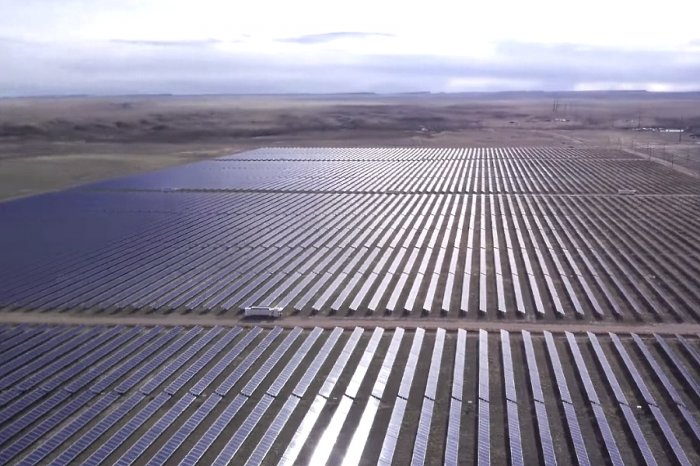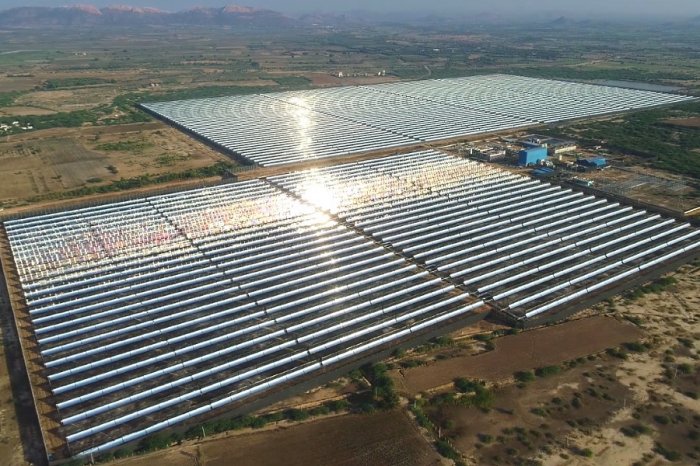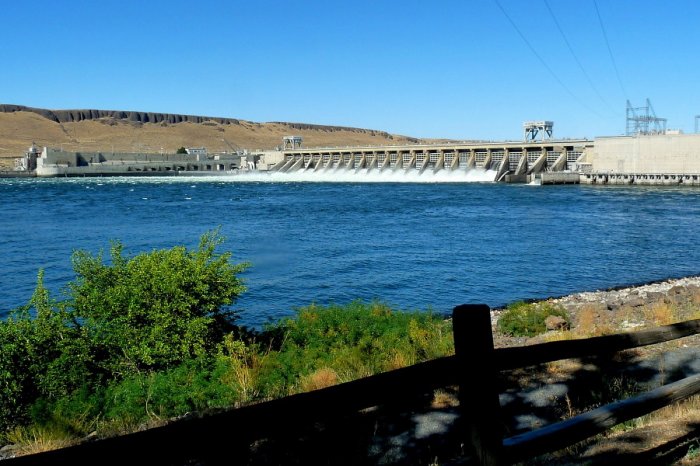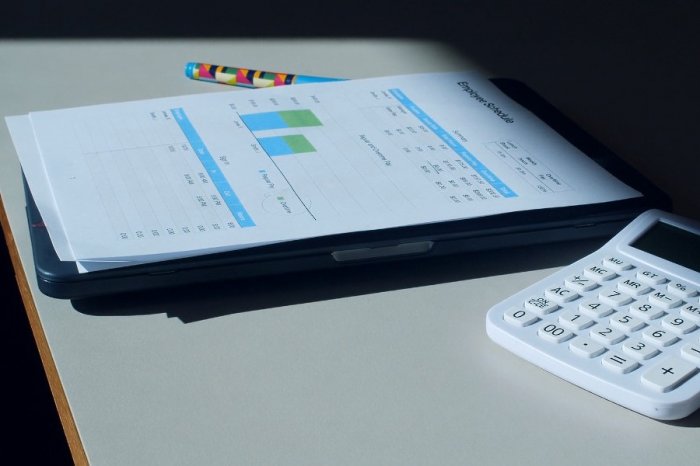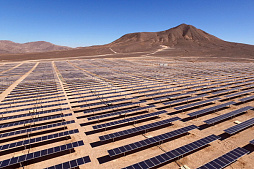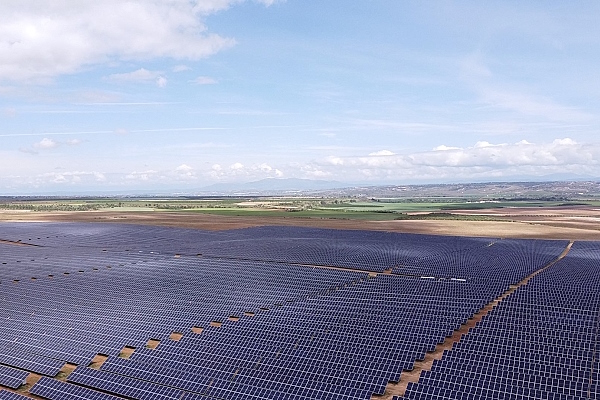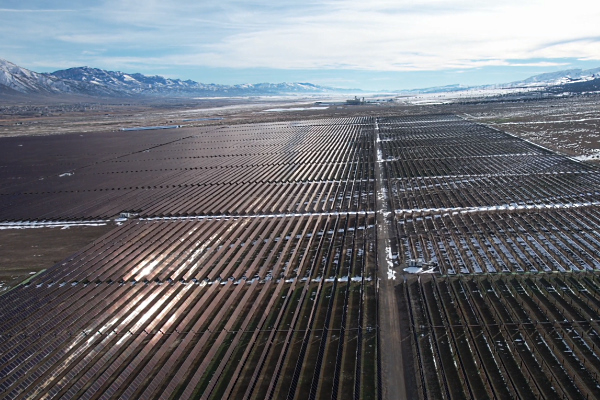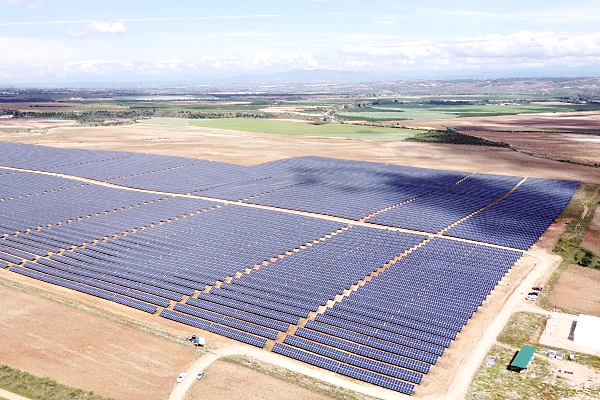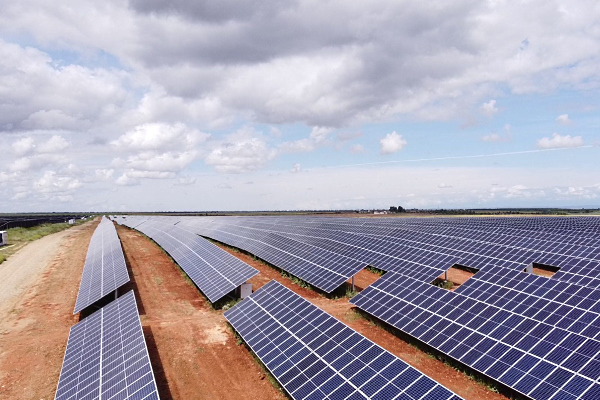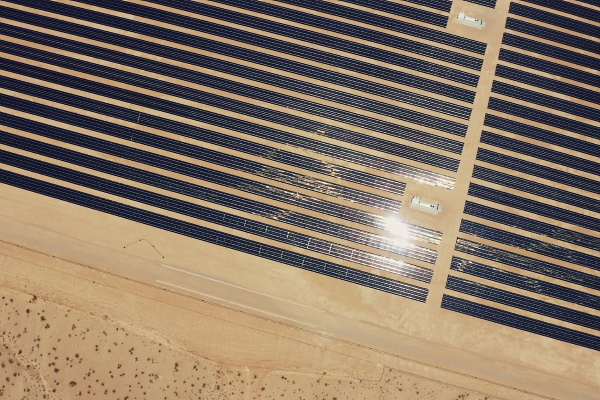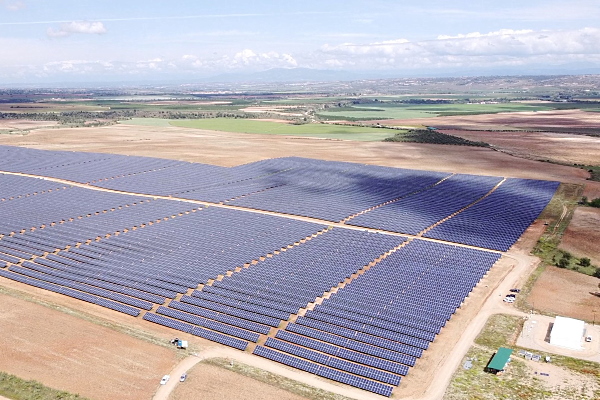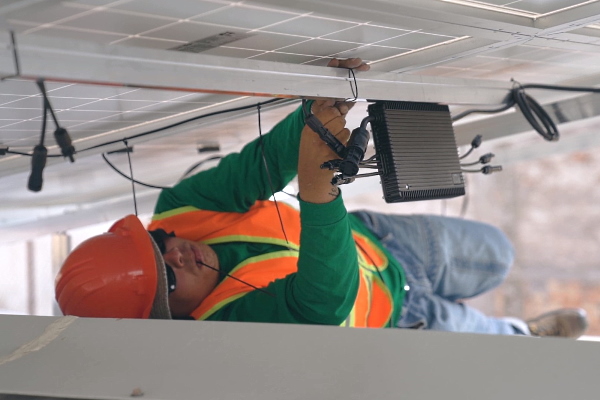After receiving the necessary documents and project presentation, our team will try to review your request as soon as possible, and leading experts will offer the best options for project funding.
The lowest prices for solar energy in the world, the largest photovoltaic projects and multi-billion dollar investments make this country a leader in the global solar energy industry.
The construction of solar power plants in the United Arab Emirates under an EPC contract includes a full cycle of work, from the development of technical documentation to testing & commissioning.
The customer has nothing to worry about anymore.
EPC professional services include:
• Engineering.
Economic calculations, selection of the optimal location for the solar power plant, obtaining permits and development of detailed technical documentation by our experienced engineers.
• Procurement.
Selection and purchase of the necessary materials and equipment, including photovoltaic panels, inverters, etc. We cooperate with world leaders to guarantee the customer the high quality of each module.
• Building.
Experienced construction teams, led by our best engineers, carry out the entire scope of construction and installation work from A to Z, including connection to the electrical system and equipment setup.
As PV technology advances, the complexity of solar project management is increasing.
Experts will help you form the goals of your project, correctly plan the budget and work schedule, assess the risks and ensure effective risk management at any stage of its implementation.
To learn more about solar power plant construction and project finance in the UAE, contact GCAM representatives at any time.
EPC contract in UAE solar energy sector: pros and cons
When implementing an investment construction project in the early stages, it is important to choose a contractual structure (types of contractors, the sequence of signing and the relationship of contracts).This will allow the project to be implemented as soon as possible with the lowest cost and with the most efficient risk management.
It is important to remember that when assessing the effectiveness of a contractual strategy, timing, cost and risks must be assessed inseparably from each other. For example, the higher cost of building a solar power plant under an EPC contract may be more profitable due to the early commissioning of the facility.
When determining the contract strategy for the construction of large energy facilities in the UAE, many factors are taken into account:
• Location of the construction site.
• Special requirements for a specific type of object.
• Selected source of financing (investor's own funds, construction loan, project financing).
• Type of construction (greenfield, brownfield, reconstruction, expansion or modernization).
• The current situation in the market of contracting services, the ratio of the competence of the customer and the contractor in the field of construction management, the advantages and disadvantages of potential contractors and much more.
The importance of timely and comprehensive analysis of all these factors can hardly be overestimated.
What happens if a customer tries to build a solar power plant with a large foreign EPC contractor and announces a tender without prior market research?
It is highly likely that none of the contractors desirable for the customer will submit bids – large international engineering companies are skeptical about such poorly prepared deals.
There are the following types of contracting in UAE solar energy sector:
• Signing contracts with many individual contractors and managing them by the internal division of the client company (the so-called "multi-lot").
• Construction of a solar power plant based on an EPC (M) contract and numerous direct contracts with individual contractors.
• Construction of a power plant based on an EPC contract.
Multi-lot contract
In the multi-lot scheme, the customer directly builds relationships with each contractor (design, construction and installation, supplies and commissioning), signing a separate contract with each partner.This implies additional efforts to control the execution of contracts and increased risks.
Each contractor is responsible for only his part of the work.
There is no single contractor to be responsible for the performance and commissioning schedule of the entire facility. It is important to understand that a violation of the deadlines by one of the contractors (for example, an engineering company does not issue technical documentation on time) gives the other affected contractors the right to demand an extension of the deadlines for their part of the work, as well as reimbursement of costs associated with such an extension.
Managing a solar energy project in the United Arab Emirates using the customer's own resources may be justified in the following cases:
• The customer has its own construction service in the UAE, which has sufficient experience in managing similar projects in the past.
• The site or project specifications allow the client to manage risk more effectively than the intended international EPC contractor.
• There are no experienced and competent EPC contractors in the corresponding market niche with the amount of liquid assets sufficient to implement a specific project.
• The ongoing project is characterized by an increased level of uncertainty and risks, which prompts EPC contractors to include a high cost of risk in the contract price.
• The project is financed by the customer at the expense of his own funds or corporate loans, i.e. there are no requirements of lenders regarding the contractual structure of the project.
• The commissioning time of the facility is not a critical factor.
Table: Construction of solar power plants under multi-lot contracts
| Pros | Cons |
| Full control over the construction process | Long project implementation, since engineering design, equipment procurement and construction are carried out sequentially |
| Possibility to optimize the construction price due to the favorable conjuncture of the engineering services market | Difficulties with project management due to the large number of contracts with different companies |
| Easy replacement of individual contractors | Lack of clear guarantees (each contractor is solely responsible for his part of the work) |
| Purchase tenders through "own hands" | The risk of incomplete achievement of the expected parameters of the solar power plant |
| The risk of violation of the deadline for reasons beyond the control of the customer (failure to fulfill the obligations of one contractor gives delay to other contractors) |
EPC contract
EPC is an abbreviation for engineering, procurement, construction and is a so-called "full cycle" contract.Under the terms of the EPC contract, a single contractor is responsible for design, supply, construction, testing and commissioning of the facility.
The EPC contract is widely used in energy engineering around the world, including the construction of solar power plants in the United Arab Emirates. This type of contract is often used in cases where the customer does not have its own service to manage the construction project, or the customer does not want to intervene in such management and assume the corresponding risks.
Also, EPC is one of the main contractual forms in energy projects that are financed by banks or other financial institutions (in particular, this applies to project financing). The reason is obvious: when providing loans, banks strive to ensure that the customer bears as little risks as possible.
The general features of EPC contracts are listed below:
• Full cycle of work performed by a single professional contractor, including preliminary technical studies, engineering design, supply, construction and commissioning.
• A pre-determined cost, which in most cases can be a lump sum. It should be noted that the presence of a lump-sum price in the contract does not exclude the possibility that a detailed estimate may appear in the process of engineering design. Any excess of the cost of work, equipment or materials over the contract price is transferred to the EPC contractor. The only exceptions are changes initiated by the customer, force majeure, and the customer's failure to fulfill his obligations.
• High contractor liability limit. Usually the limit of liability is limited to the size of the contract price, although in some cases the liability of the EPC contractor is limited only to a percentage of the contract price.
• The EPC contractor has more independence in the implementation of the construction process, and the customer has a minimum of opportunities to manage the construction of a solar power plant and without significantly influencing subcontractors.
• Most of the risks, including the risks of unexpected costs and delays, are borne by the EPC contractor. With the right choice of a contractor, an EPC contract is the most convenient and reliable solution for the customer. With this form of relationship, the customer only needs to conclude one contract; all responsibility for the timing, quality and performance of the facility is based on the “one window” principle. Violations by one of the subcontractors do not give the EPC contractor the right to an extension or exemption from liability.
It should be noted that EPC is also the most expensive solution: the EPC contractor analyzes all of the above risks and adds to the price.
If we talk about the construction of solar power plants in the UAE, the cost of an EPC contract can be 15-30% higher compared to a multi-lot contract.
At the same time, transferring risks and reducing construction time gives the customer significant benefits. Early commissioning of a power plant is often possible due to the fact that the EPC contractor, being the only person responsible to the customer, can develop technical documentation in parallel with the procurement of materials and equipment, as well as construction work.
For example, an EPC contractor may not have to wait for the development and approval of all project documentation in order to start ordering equipment with a long manufacturing cycle. Effective use of parallel design can significantly reduce the overall construction time. This is especially true for energy projects that are tied to obligations to multiple consumers. In such cases, it is justified to use the EPC model of project implementation, which, despite the higher cost, allows the construction to be completed in a shorter time frame.
Each contractual strategy, both the “traditional” model of managing the customer's forces and the EPC model, has its own strengths and weaknesses.
Table: Pros and cons of construction of solar power plants under EPC contracts (“single-lot”)
| Pros | Cons |
| Reduced project implementation time due to parallel design, procurement and construction | Higher contract price |
| Ease of project management by signing one contract with a single professional contractor | Limited number of experienced general contractors in some market niches |
| Minimizing the risk of not reaching the expected technical performance of the solar power plant | Lack of control at the subcontractor level |
| Reducing the risk of violation of project deadlines | Difficulty replacing unsuitable subcontractors |
| High level of financial responsibility of the contractor and guarantees on the principle of "one window" | High risk in case of choosing a "bad" general contractor |
EPCM contract
EPCM is a contractual solution that, in terms of risk distribution, lies in the middle between the multi-lot model and the EPC contract.This type of relationship is also used in the construction of energy facilities in the UAE and other countries in the Middle East. It should be noted that there is no single and unambiguous understanding of what is considered an EPCM contract.
This could include, for example, a situation where the EPCM contractor is acting solely as a technical consultant without any subcontracting agreements. An EPCM contract can also be called a full cycle contract in which the price is determined according to the principle of "open book" or "reimbursement".
The terminology is also complicated by the fact that none of the leading international organizations (FIDIC, ICC Orgalime) has issued proforma for the EPCM contract.
EPCM is an acronym for Engineering Procurement Construction Management.
In this model, the word management most often refers to construction in the narrow sense of the word, i.e. to perform construction and installation and other works on the site. Consequently, an EPCM contract is most often understood as such a model when the contractor, on his own or by his subsidiary, carries out engineering design and procurement of equipment and materials. In this case, the contractor only carries out the management of construction and installation works, i.e. it does not select subcontractors, but only manages the subcontractors hired by the customer.
The fundamental difference between the EPCM and the EPC is that the EPC contract is an agreement on “taking responsibility and risk”.
By concluding an EPC contract, the customer largely shifts the risks and responsibility to the EPC contractor, who is responsible for the project with its liquid assets.
An EPCM contract is a professional services agreement in which the customer “purchases” competencies. The responsibility of the EPCM contractor for the schedule and cost is absent or negligible in comparison with the cost of the project and, therefore, is only stimulating.
There are various options for structuring the price in the EPCM contract, but the price in this case is never final. Often the price is a combination of time-based rates in relation to those functions that the EPCM contractor performs on its own.
This principle means the following:
• Subcontracting is carried out in the most transparent way for the customer and with the participation of his representatives.
• The contractor discloses the structure of his own expenses, as well as the size of the estimated profit, since such expenses / profits are either fixed in a certain amount or added as a percentage to the value of each supply contract.
As already noted, the contractor's EPCM liability is limited and resembles more the responsibility of the consulting engineer (who is only responsible for the unfair or incompetent provision of his own services) than the responsibility of the general contractor. However, EPCM contracts often include incentive mechanisms for the contractor using the principles of bonus / malus (the so-called gain sharing / pain sharing).
For example, when a solar power plant is put into operation at an earlier date, the contractor receives additional profit. Conversely, if the schedule is violated, the contractor loses part of the profit. Likewise, incentives for total construction costs can be structured. The parties can set a certain target budget and if the contractor achieves savings, then the saved amount is divided between the parties in an agreed proportion.
However, when agreeing on a bonus / malus, the EPCM contractor is usually not ready to risk all the profits and therefore this mechanism does not give the customer complete comfort in terms of cost and construction time. It is only aimed at increasing the contractor's interest in the successful implementation of the project.
One of the advantages of the EPCM contract over the EPC model is that a tender for the selection of an EPCM contractor can be prepared and carried out much faster than a tender for an EPC lump sum contract.

The reason is less detail in terms of scope of work, delivery boundaries and risks; the contractor is not required to prepare a final quote for the total project cost.
When bidding on the EPC lump sum model, the customer needs to prepare detailed technical documentation and requirements. Sometimes contractors can either refuse to submit bids with a fixed price altogether or assess the risks at a very high value. Of course, the contractor needs more time to prepare a fixed price proposal that takes all risks into account.
Given these objective reasons, the EPC contract remains the most popular model for the construction of solar PV systems in the United Arab Emirates.
Choosing EPC contractor in the UAE: advantages of GCAM
When preparing a tender, the customer should first carefully analyze the market of engineering service providers and identify companies with the necessary experience and sufficient resources to implement the project.The analysis of proposals can be carried out in three stages. At the first stage, engineering firms that do not have the necessary experience, qualifications and resources, as well as companies with high risks of financial and operational stability, are screened out.
Next, you need to compare the companies according to a number of predefined criteria:
• Experience in implementing solar projects in the UAE.
• Experience in designing a specific type of power plant.
• The professional level of the main staff.
• History of completed projects, etc.
Such a qualitative comparison helps to identify 3-4 companies with the most attractive offers.
Finally, at the third stage, negotiations are held with the finalists on the cost, timing and other terms of the contract.
Price only matters if it is made by a contractor with sufficient qualifications.
When choosing a contractor for the construction of a solar power plant, there are a number of criteria to consider. The most important of them is the history of completed projects, similar in terms of technology and scale. By entrusting a solar project to a contractor without relevant experience, the customer is taking a high risk.
Are you ready to make your multi-million dollar project a training ground for a contractor?
The financial responsibility of the contractor for the result of the project almost never covers the lost profit and all costs incurred by the customer.
Experience of working with local subcontractors in the United Arab Emirates and knowledge of local building regulations are also important. It is no secret that foreign engineering companies are often unable to complete the entire list of works, including the preparation of part of the project documentation or the approval of technical conditions.
Finally, it should be considered that the contractor has experienced staff, both engineers and project management specialists. A qualified project team is essential for large scale solar energy projects. According to our observations, the success of a project depends on the effective work of managers more than on any other factor. Neither the reputation of the company nor the size of the project team can match the value of the professionalism of the project manager.
Choosing an EPC contractor is the most critical stage in the implementation of your solar project in the UAE.
The professional knowledge, technology, financial resources and experience of the contractor is a decisive factor for the successful implementation of large investment projects.
At this stage, many customers make the following typical mistakes:
• The list of services and the responsibility of the contractor are not clearly formulated.
• The tender is not held transparently enough, without the admission of all interested parties.
• The selection of the contractor is based on criteria not related to the success of the project.
• The customer does not conduct additional negotiations with contractors aimed at reducing the cost of work and improving other conditions.
It is important to clearly define the scope of work and boundaries of responsibility.
To be sure of the result, it is useful to conduct a series of consultations with experienced EPC contractors and ensure the completeness and clarity of the terms of reference.
It is also very important to give candidates sufficient time to prepare bids. As a rule, engineering companies need from several weeks to several months for preparation in order to assess the cost of a turnkey EPC project. If there is not enough time to prepare proposals, then potential contractors are forced to make very rough calculations and include additional cost in their bids.
We are always ready to offer alternative options, so it is easy to discuss with us any details of projects: from individual components to budgets. We are constantly learning, keeping our finger on the pulse of modern technology.
Having a wide range of suppliers, we guarantee high-quality, original and reliable technical solutions for each project.
Our advantages for customers:
• Advanced European technologies.
• Impeccable quality of work and strict adherence to deadlines.
• All projects being carried out comply with modern international standards.
• Using photovoltaic equipment from industry leaders.
• Support at all stages of the project.
We really does more for the customer than he expects to get.
The construction of solar power plants in the UAE is growing
In early 2020, the United Arab Emirates began construction of a 2 GW solar power plant, which will be located in the emirate of Abu Dhabi.It is stated that the electricity it generates will cost only 1.35 cents per kWh. In addition, there is a basic agreement for the establishment of a facility with an installed capacity of 2.6 GW in Mecca.
Recent megaprojects in the sector, such as Mohammed Bin Rashid Al Maktoum Solar Park, have exemplified how cheaper technology, natural resources, and the government's commitment to renewable energy can transform the economy. The UAE's rapid transition from oil and gas to solar energy is impressive. With solar energy booming, demand for engineering services and project management in the United Arab Emirates is growing.
In addition to technological progress, the cheap solar electricity in the UAE is explained by several factors:
• A large number of sunny days a year.
• Low cost of land (huge areas are rented out practically free of charge).
• Low wages for builders and equipment maintenance specialists.
• Affordable construction loans at low interest rates.
• Favorable government policy.
For comparison, the average cost of solar energy in the United States is now about 12 cents per kWh, while in Germany this figure reaches 30 cents per kWh.
In 2019, Emirate Water and Electricity began operating the world's largest private solar project. The new facility, with an installed capacity of 1.2 GW, was twice the size of Solar Star, the largest solar power plant in the United States.
Although there was no PV system in the country until 2013, by 2050 the United Arab Emirates plans to cover most of its energy needs from carbon-free sources, mainly solar and nuclear energy.
The role of project management in the UAE energy sector
The energy sector in the United Arab Emirates has seen intensive investment in recent decades.New facilities are being built throughout the country, new technical solutions are being introduced.
During this time, three main types of participants in project management have developed in the energy sector, which can be associated with their roles in a project: a customer, a general contractor or an engineering company, and subcontractors, i.e. performers of certain types of work.
The customer is focused on achieving the target parameters of the created or modernized energy system in the shortest possible time while maintaining its planned cost. The general contractor manages the implementation of the project, including determining the technology for carrying out the work, coordinating the engineering design, supplies, construction work, installation and commissioning of equipment.
Subcontractors are focused on the optimal use of their resources to carry out the work contracted by them. This work is carried out at the level of individual engineers, assembly teams, construction equipment, mechanisms and measuring equipment.
The role of effective project management in the energy sector today is difficult to overestimate.
We are talking about potential savings of tens and hundreds of millions of dollars at various stages of the construction of large solar power plants.
The leader in project management in the UAE is undoubtedly thermal energy and the newly emerging nuclear energy.
Many solutions have been worked out in these sectors and have spread to other industries. Here, multilevel planning is adopted, and the customer can fully control almost all the resources used.
GCAM Investment Group offers customers financing and innovative approaches to project management in the energy sector, which have proven their high efficiency around the world.
To find out more about our offers, contact us and schedule a consultation at any convenient time.





